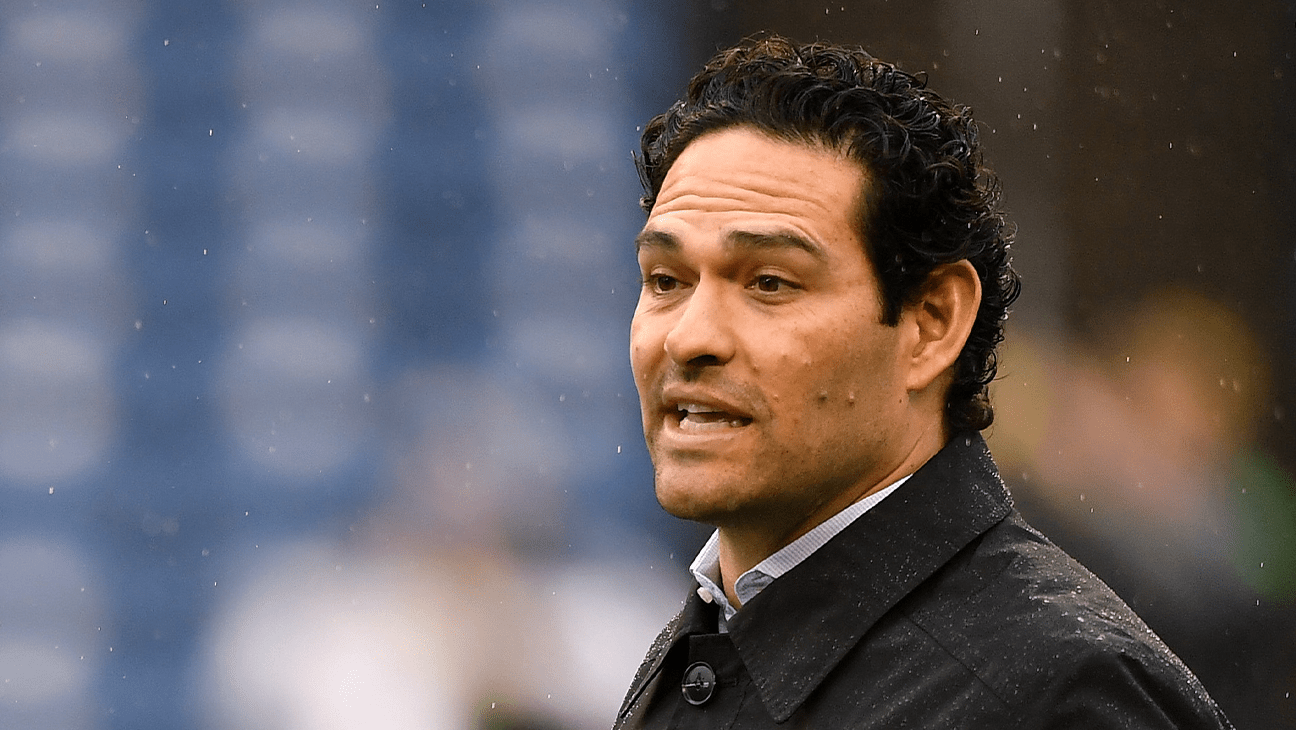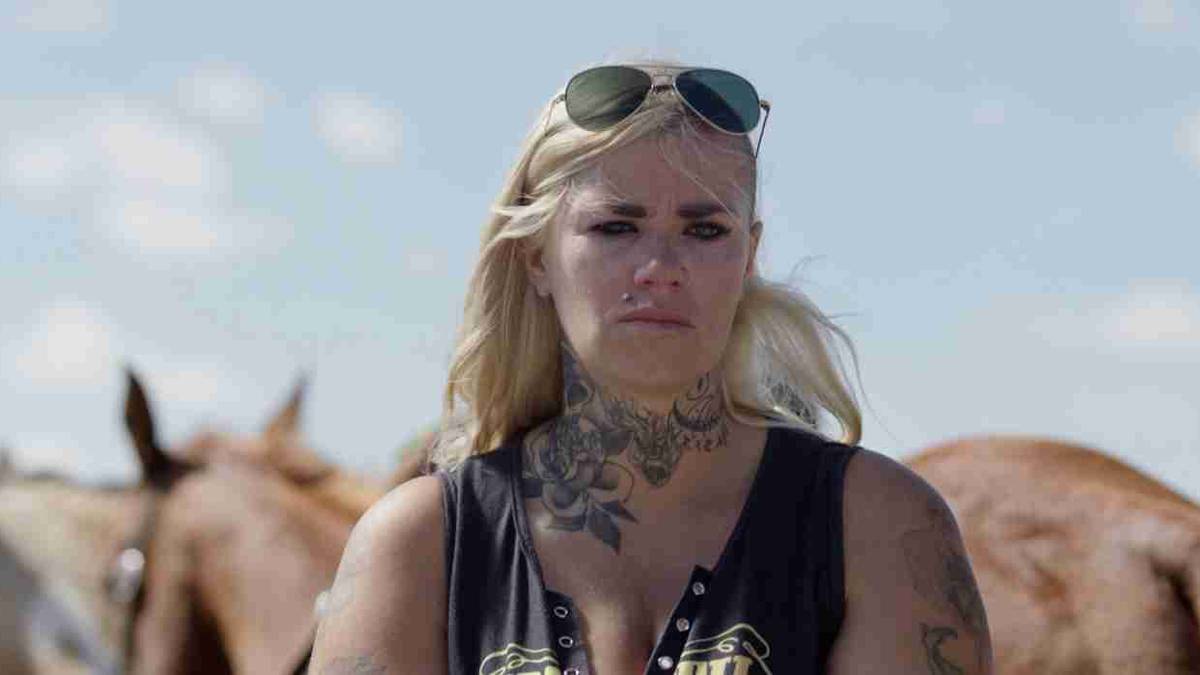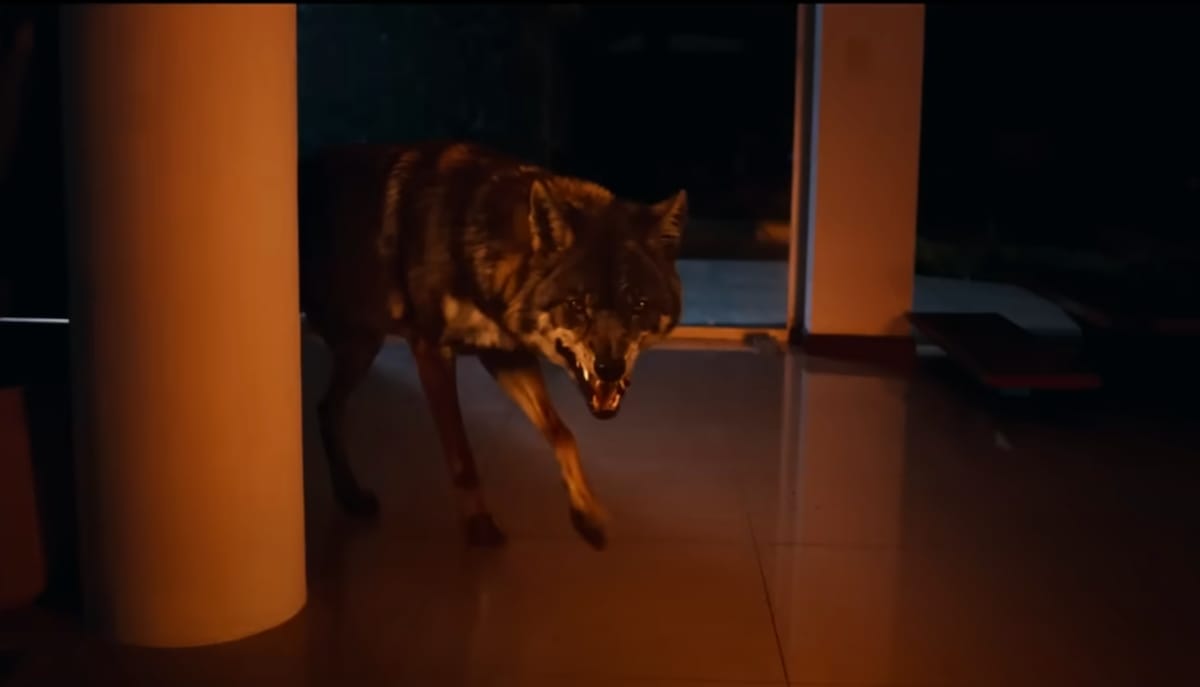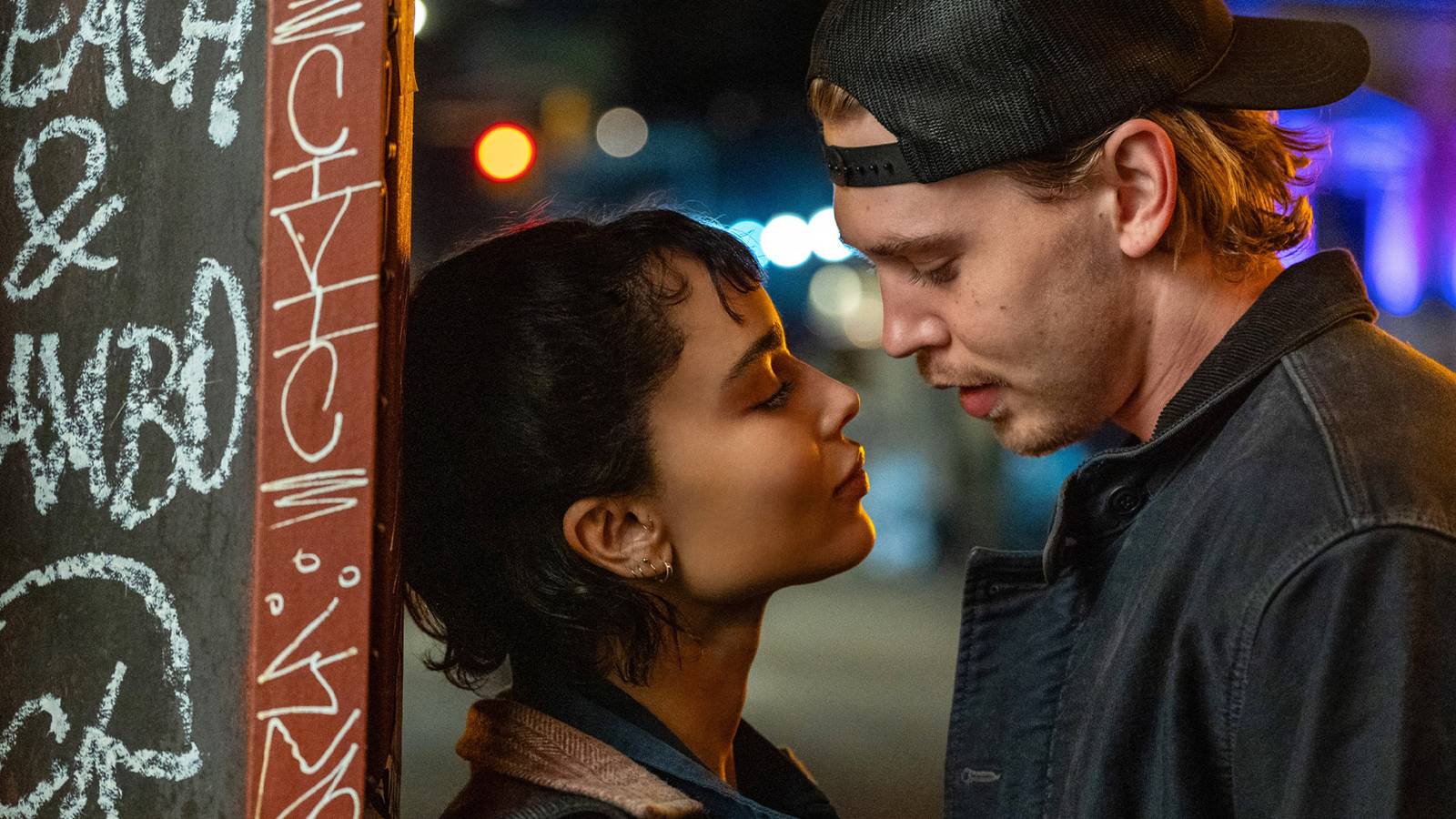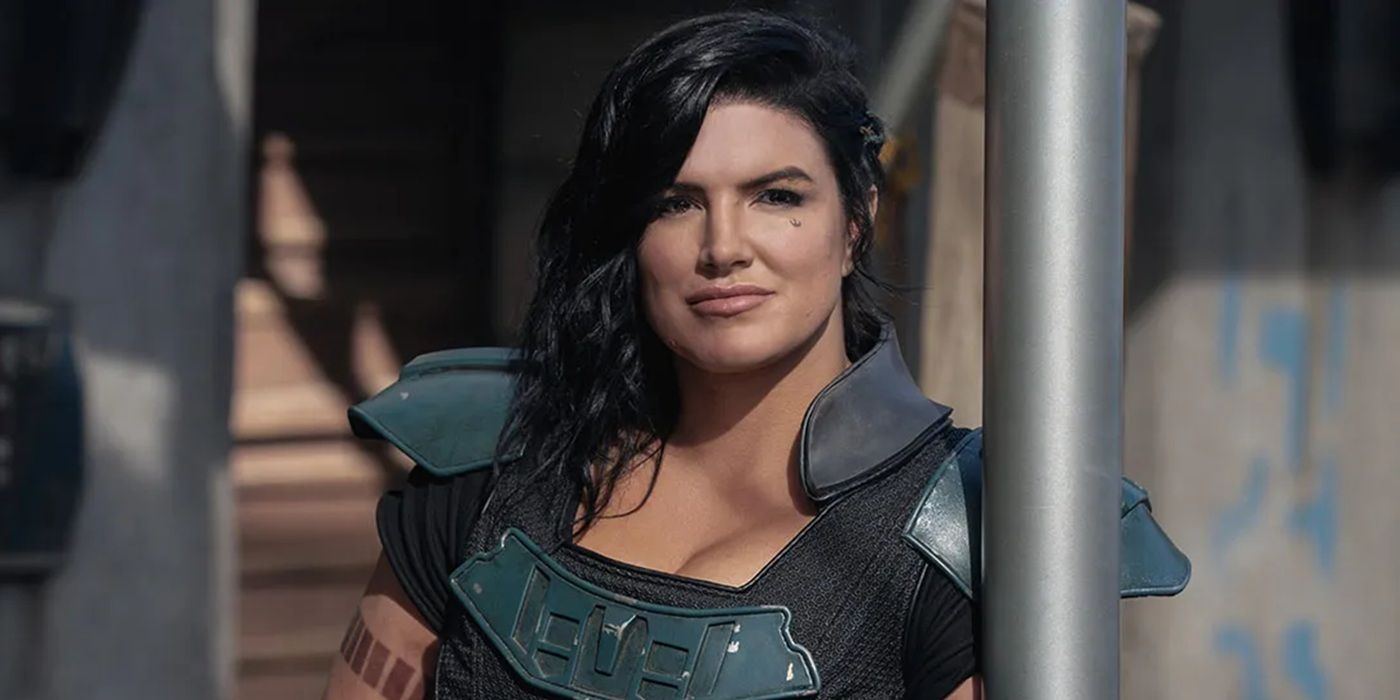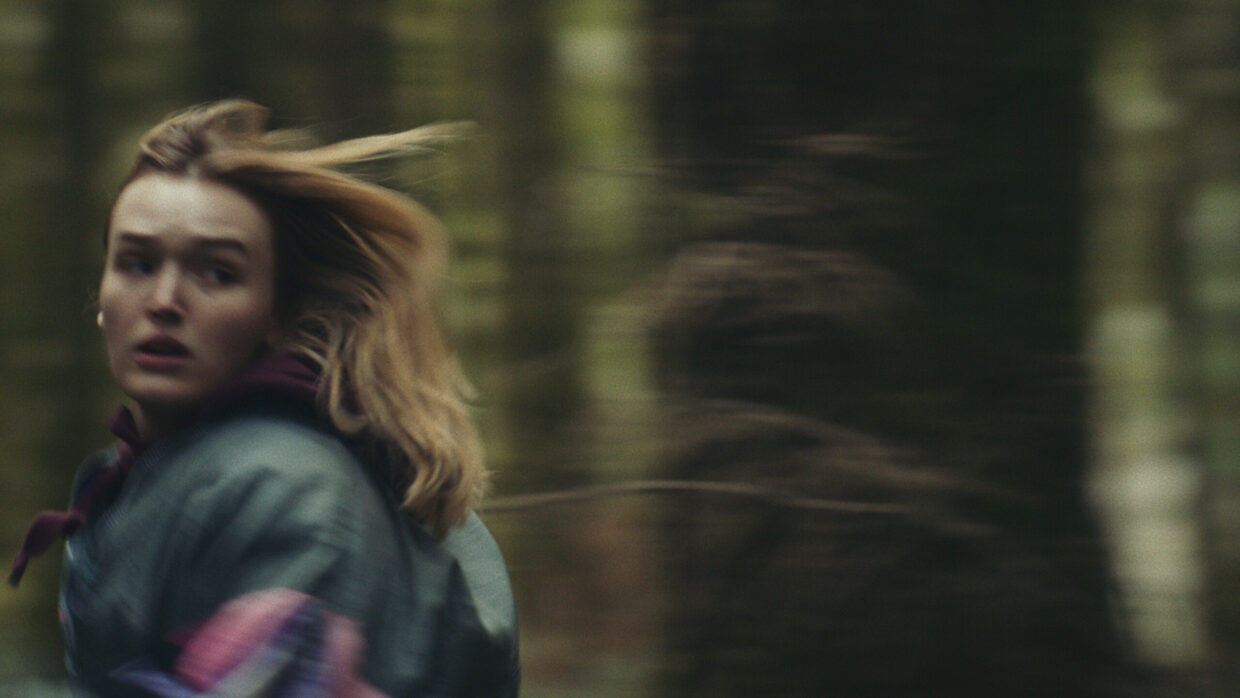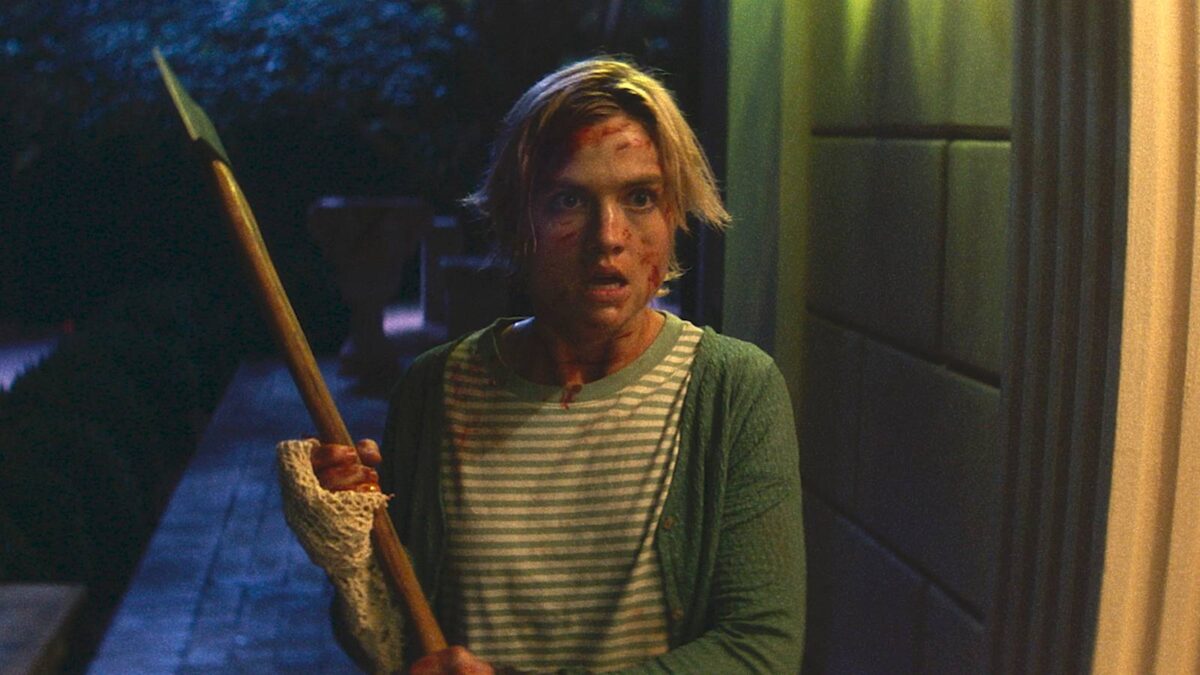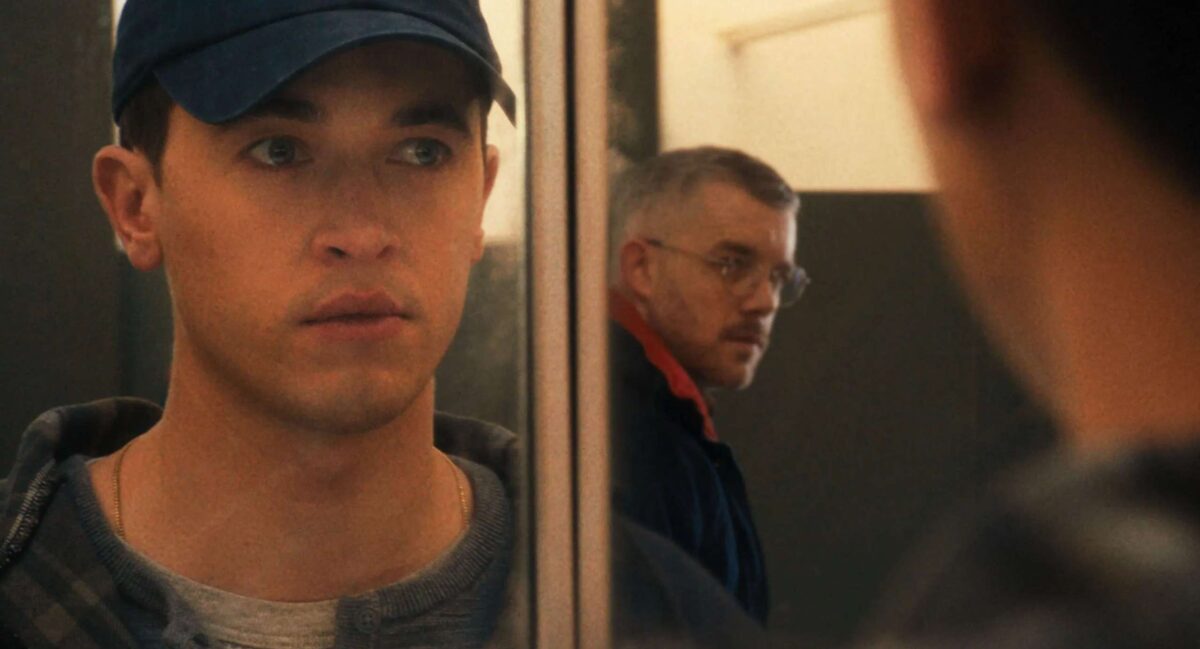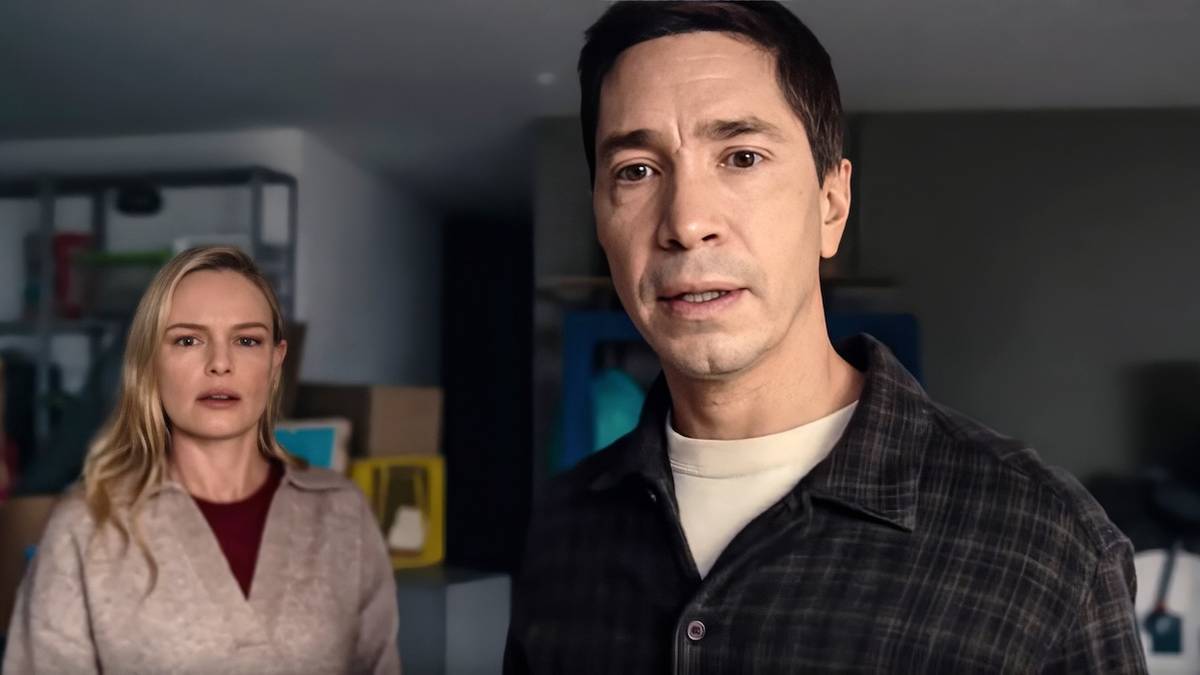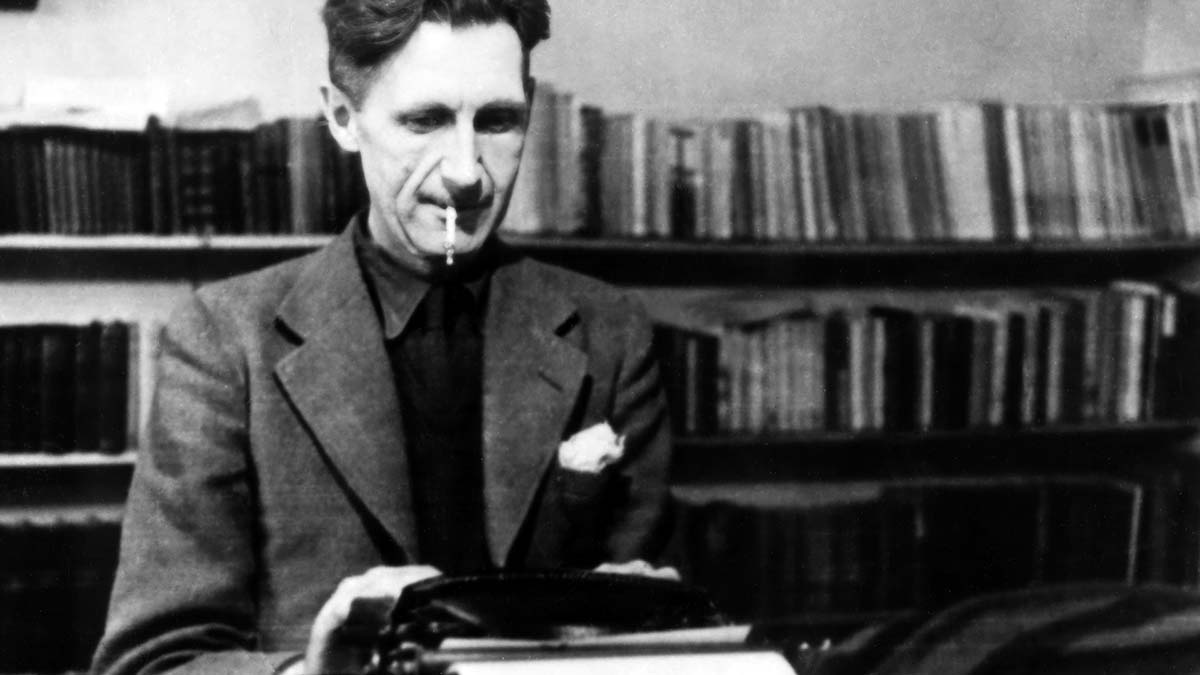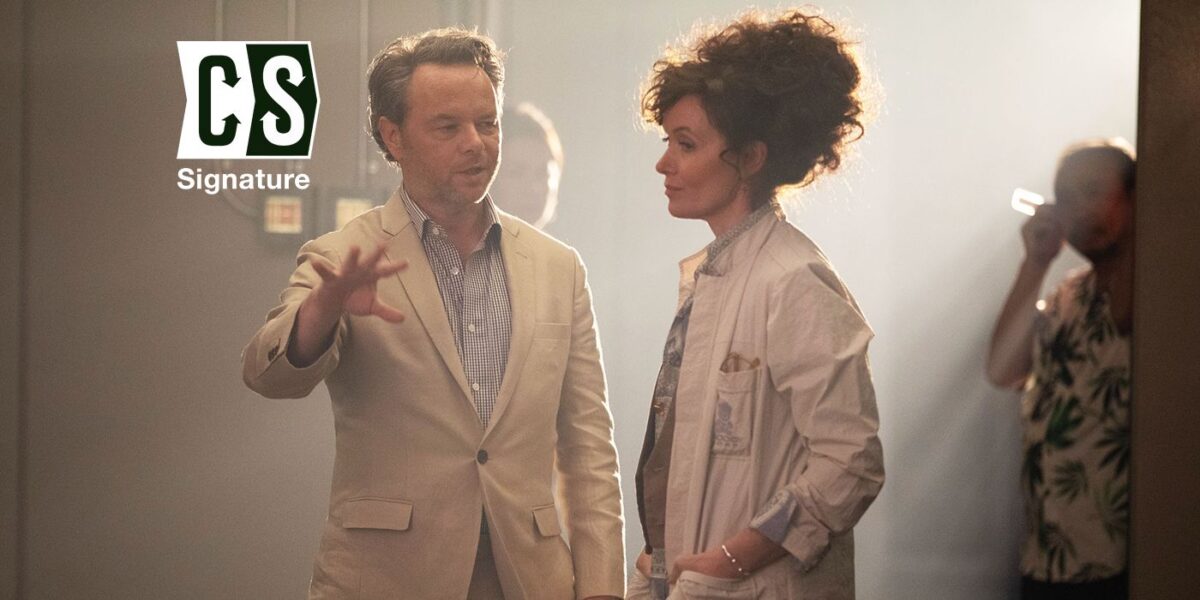
Earth’ With a Perfect Ridley Scott Homage — Before the Real Horror Starts
Aug 13, 2025
Editor’s note: The below interview contains spoilers for Alien: Earth Episodes 1 & 2. It’s the eve of his new FX series, Alien: Earth, finally premiering, and Noah Hawley hasn’t stopped moving. When I hop onto a Zoom call with him, on the heels of what’s been weeks of press for the latest installment of the iconic sci-fi horror franchise, he’s standing at his desktop, not content to stay seated, the camera occasionally adjusting to a new angle to keep him in line of sight. Call it nerves, call it anticipation for a project that’s been years in the making to finally hit screens, but Hawley’s also aware of just how much is riding on the success of Alien: Earth, as he goes on to mention several times over the course of our conversation. Based on the sheer level of promotion Disney has put into the series, it’s clear there’s faith in what Hawley has crafted, but the man steering the ship also has confidence in the final product. It’s a surety that carries throughout our chat, his belief that every frame of what’s set to be released is the best version of itself — but Hawley also doesn’t make a habit of looking back at his own work or holding onto the possibility of what could have been. Ahead of Alien: Earth’s two-episode premiere, the screenwriter and director delves into the long development process for the series, why he hopes it feels like a gift for his fellow diehard Alien fans, which episodes he wanted to direct himself, crafting everything from new alien species to redefined androids, and much more. NOAH HAWLEY: How are you? COLLIDER: I should be asking you that question! “Long-gestating” feels like both the right and wrong word to use for the road to this show finally being out… NOAH HAWLEY: Hopefully, it won’t have as ugly an end as it did in the movie. [Laughs] No, look, these are the dream-come-true moments. When I wrote Before the Fall, it was my fifth book, and I had published four tree-in-the-woods kind of books. I thought, “Well, will you know if you write a bestseller?” The reality is you know, and you know months in advance. That the advance praise, the notice, the spend on the corporation’s part, all of that stuff is unmistakable. I knew when Disney sent 134 marketing executives to Bangkok that we were an important show for them. Luckily, I think the show delivers creatively, and every time they’ve put it out for feedback, the feedback has been universally positive, and that emboldens them to invest more in the marketing, and you see this perfect storm of a launch that we’re watching. It’s a once-in-a-lifetime kind of moment, and you have to acknowledge that when it comes. Considering that we’re on the eve of the show being out, are there any nerves? Or is it more that the further you’ve gone in your career, now, there’s confidence in the end product and a readiness for other people to see it? HAWLEY: Now, there’s nerves. The stakes are really high — both in terms of the success of the show, and then my own ambitions as a storyteller, and in this business there’s a lot that’s riding on the success of the show, and big success can change everything. I have been operating at a level of success that is far beyond what most people in my field could ever expect to enjoy. And yet, the reality of this business is there’s money, and there’s real money. You can earn these corporations a nice, steady amount of money, and then you can earn the real money, and then you fill a different space in the business, and that empowers. I have this idiosyncratic approach to storytelling, and my work is very “Trust me.” Because it’s like, “So here’s the Alien franchise, what do you want to do with it?” “I want to do a Peter Pan narrative with it. Trust me, it’s going to work.” And so it does work, and then hopefully it works commercially, and then they trust you more the next time. That’s really what it is for me. It’s so hard to shepherd an idea from original vision to “what you see on the screen is actually what I wanted you to see on the screen,” versus the process that you go through. Notes, financial constraints, budget, etc. Anytime I can reduce friction that gets me from that original idea to the final product in a way that makes me feel like I’m climbing fewer flights of stairs to get to the second floor, that’s always helpful.
Noah Hawley’s ‘Alien: Earth’ Was Years in the Making
“Once you let go of the idea that you can make everybody happy all of the time, it becomes a lot easier.”
Image via Patrick Brown/FX
To jump back to the original idea, this project — or even the mere concept of an Alien TV show — has been years in the making. My understanding was that it got tabled for a while, after being floated at 20th Century Fox, until the Disney merger, and then later on, FX was ready to go full steam ahead. Were you coming up with ideas for this throughout that period? HAWLEY: Before the Disney acquisition of Fox, when it was just Fox, John Landgraf came to me and said, “If I could get 20th Century Fox to share the Alien franchise, would you have an idea?” And I said, “Yes, here’s an idea.” And then 20th said, “No, this is a film franchise we’re not ready to share.” So it went away, and then Disney came in and acquired Fox. There was a year or two in which they were reorganizing what their film departments were, and we basically reached a stage where John called me and said, “I think I can get it now.” That was probably in 2020, and then the process started for real. This is obviously not your first time coming to an existing sandbox and getting to really play and use the pre-established tools of a world. Given where the show is set, it feels like it might be a tricky tightrope act of creating something that isn’t going to necessarily bump up against what already exists. HAWLEY: Once you let go of the idea that you can make everybody happy all of the time, it becomes a lot easier. When I did Legion, which was based on the X-Men comic books, I had my own approach to it, which was to take the powers out of it. What’s the story you want to tell? It was the end days of Breaking Bad, and I thought, “Well, what if Walter White was a supervillain story?” I started to look around, “Well, what characters from the X-Men universe could I explore that through?” I found Professor X’s son in this storyline, who was mentally ill. So I sort of explored this concept, and took it to its logical conclusion. What I realized was, if you just take everybody’s favorite X-Men story, the Dark Phoenix Saga, and you try to adapt that, inevitably you’re going to have to change things, composite some characters. All you’re going to do is piss people off. It’s almost a thankless enterprise. But if you go, “Hey, this world you love, and these characters you love? I’m going to tell you all new stories.” Then it feels more like a gift. It’s not like you’ve taken someone’s favorite thing and done something to it. You’ve said, “Here’s another thing, this could be your favorite too.” That was my idea with Alien [: Earth], was to say, “I’m a fan also, and here’s something that I think would be cool.” Well, the opening of Episode 1 is very much a loving homage to the first movie, that whole sequence of the crew of the Maginot crew coming out of cryo-sleep and sitting around the table. How early in the process did you decide on that entry point? Was it meant to be a way to ease viewers in? HAWLEY: When we went into production in 2023, before the strike, the script started with Marcy and the scorpion and Kirsh. When we shut down, and I was able to cut footage together, and I had these conversations with FX, and we decided that we were bringing fans into a show called Alien, and it would be good if from the very first moment they were like, “Oh, it’s Alien!” That buy-in would be important. I wrote this sequence, and we filmed this sequence later, which opens the show now. But as I did it, I realized, “Well, this is actually a critical element.” When you make this translation from film to television, the most important thing is authenticity. The audience has to turn it on and go, “Oh, it’s Alien, I’m watching Alien.” It also signals the fact that we start with a kind of literal homage to Ridley’s movie. We declare ourselves, “This is our Alien. Our Alien is Ridley’s movie. Our Alien is Cameron’s movie,” and not because the other movies aren’t good, but just because the third one’s in a prison and the fourth one’s in the future. You have to declare where you are in the canon. I think by opening the way we open, the audience relaxes, they know what Alien is. Then, when we pivot to the new story, people are generous because they feel like they’ve lost that anxiety. With this being an eight-hour TV show, you have so much more runway to really expand a lot of these ideas — the scope of the world, what the situation on Earth is like, these megacorporations that are owning everything. Elements of worldbuilding that you sometimes only get one or two scenes spared for in a film. HAWLEY: That’s why I stick with long-form storytelling — because if you think of a two-hour movie as a pyramid, at the base it’s widest, and you have the most time to explore character and theme, etc. The closest you get to the point at the top, the narrower your bandwidth becomes, until all you can do is plot. All you can do is pay off what you set up. When you have eight or 10 hours, it appeals to me as an ensemble storyteller, because I believe that multiple points of view make a story richer. It also means that I can take the parts of the story that wouldn’t fit into a two-hour film, but are fascinating, and explore those as well. Sometimes in a way that’s purely thematic, and sometimes in a way that’s a backstory, the way we have here, and sometimes as a sort of parable, but it creates something that’s bigger than the sum of the parts. It’s not plot-driven in the same way a TV season has a beginning, middle, and an end, and each episode has to have a beginning, middle, and an end also, and somehow add up to the season, which somehow adds up to the series. Structurally, it’s just a much more complicated and ambitious swing to try to pull off. That said, the perfect two-hour movie is… you can probably count the perfect movies on one hand, if not two.
Noah Hawley Explains Why He Directed Episodes 1 and 5 of ‘Alien: Earth’
“If anyone’s going to shoot that hour, it’s going to be me…”
Image via Patrick Brown/FX
In watching through this season, you do direct a couple of episodes, but why 1 and 5 in particular? The second episode is very much a follow-up, a Part Two to the first. Was that really the motivation behind wanting to helm those two? HAWLEY: It was. The world building, it’s critical that I start it, because every cinematic world building decision that gets made, I’m going to have to make anyway, as the showrunner, because I’m going to be in the editing room, and everything is story, costumes are story. I always want to start the first one, work with the actors, get them into their characters, and really set the table. The thing that you’re doing anytime you make something new is the first hour teaches you how to watch the whole season. You’re creating a cinematic language, narrative style, etc. I’ve just found the shortest distance between two points is for me to just do it myself. Normally, I would do the first two. Some people do the first and the last. I tend to find that, at the end, I’m so busy editing and everything that that’s the last thing that I would want to do. The fifth hour, as people will see, is a meaningful episode that felt like… well, I just selfishly wanted to shoot it. “If anyone’s going to shoot that hour, it’s going to be me,” etc., and it was super exhilarating to do so. In speaking with a co-worker of mine about Episode 5, he dubbed it “Noah Hawley’s Alien.” HAWLEY: Well, good. After seven movies, if you’re gonna take it on, then you better have something undeniable. You mentioned establishing world building aspects from the ground up. I have to ask about the new creatures that we get in this show, one of which has been lovingly nicknamed “Mr. Eyeball” over here at Collider. HAWLEY: Nice. I like that you think he’s male, but go on. Oh, is he not — ? HAWLEY: I’m just saying, you made a choice there. I’m not saying you’re right or wrong, but he’s pushy, for sure. In terms of the world building, you’re really getting to create these new beings that are unlike anything we’ve ever seen, but in many ways are just as complex as the xenomorph that everyone already knows. HAWLEY: I’ve said before that nobody taught me how to do any of this, and so I found myself starting with Fargo, taking this classic film and having to break down, “What is Fargo? Why does it work? What do I feel when I watch it? Now, I’m going to tell you a new story, and I’m going to make you feel all those same feelings, just in different places for different reasons.” When I looked at Alien, and to a somewhat lesser degree, Aliens, I had to look at the feelings that those two movies generated. One of the critical feelings was the dawning horror, growing horror at the life cycle of this creature, and the discovery, and the facehugger moment where you think, “This is the worst thing I’ve ever seen.” And then it falls off, and you go, “Oh, that’s great. Good, we’re going to have a meal now, and everyone’s okay.” Then, of course, the chestburster, and you realize what has happened — that it’s laid another egg inside of him. Every step of the way, it grows to be this 10-foot-tall monster with two mouths, and each step is worse than the last on some level. It’s because you’re seeing it for the first time that it has that impact. Then in Cameron’s, it’s the second time, but it’s still a little bit fresh, but you’ll never feel that again with those creatures. So that feeling, which is so critical to discovering Alien, I felt like I had to have that. Otherwise, we’re not making Alien. I said, “Well, what if the ship is like the HMS Beagle, and it’s collecting multiple species? What can we do with those, and what can those be?” It leads to, like you said, really great moments — not just on the island, but also something as simple as what you just did, taking a sip of water. You’re sitting on pins and needles waiting to see what happens. HAWLEY: The goal is for ordinary objects to suddenly be untrustworthy, and you want to take it away with you the same way you would… you never looked at a wood chipper the same way again after Fargo.
“… you want to send people out with a big feeling.”
Image via Patrick Brown/FX
Purely selfishly, is the playlist for this show going to be released anywhere? That’s the first part of this question. The second is about finding the sound of the show through these closing credits songs — everything from Smashing Pumpkins to Metallica to Tool. It feels like a form of punctuation, a lot of the time. HAWLEY: My joke is classic movie, classic rock. But there’s something about the space that Alien fills in people’s lives — and that James Cameron movie, that’s anthem rock right there, you know what I mean? That movie is so huge in the last 20 minutes. It’s thrilling. It just keeps getting bigger and bigger. The problem with a television show is that you do one episode, and then you take a break, and then you want to send people out with a big feeling. I just had this sense from that very first episode, where we end with “Mob Rules” by Black Sabbath. There’s a moment in Aliens where Vasquez yells, “Let’s rock!” and she starts spraying bullets everywhere, and I was like, “I think that’s what we have to do, we have to rock here. If we succeed in giving them the Alien series of their dreams, people are gonna have such a big feeling of…” I don’t know what that feeling is, but it’s a hugely positive feeling. That beat kicks in, that song kicks in, and it just cements that feeling. It takes you out of the episode, and you’re like, “I cannot wait for next week,” and that felt really critical to me. The character of Boy Kavalier is perfectly infuriating. It’s difficult not to draw real-life parallels, but I can’t imagine any one person was the inspiration for someone like him. HAWLEY: Well, it’s Peter Pan taken to its logical conclusion. By introducing this Peter Pan metaphor and these children being placed into these adult bodies, then you’re like, “Well, who’s the creator of this product?” Of course, he thinks he’s Peter Pan, and that’s why he’s labeled them the Lost Boys, and she’s Wendy. And then you think, “Well, Peter Pan’s the boy who never grew up,” right? So I do feel as we look around at… well, let me back up a second. Ridley’s movie and Cameron’s movie were class warfare movies. It was space truckers working for a nameless, faceless corporation that didn’t care about them, and grunts working for a nameless, faceless corporation that didn’t care about them, and Paul Reiser was middle management. But still, you didn’t know where power resided. That’s because in the ’70s and ’80s, there were no celebrity CEOs. Now, there are no nameless, faceless corporations. I’ll name the companies, and you’ll picture it: Meta, you know who that is. Apple, you know who that is. Tesla, Amazon. There’s a face that goes with it. I felt like if I was doing a nameless, faceless corporation, it wouldn’t reflect our current reality. On some level, [Boy Kavalier] is a super irreverent character, and he throws the rulebook out, and we tend to like people who throw the rulebook out. It’s why villains tend to be our favorite characters. There’s just something about him that’s funny to me. When Wendy says that her brother is nice, and he says, “He’s nice if you like brothers, which I don’t, or mothers.” He’s very transparent and honest, and I think that it’s disarming in a way — but yeah, if you love to hate him, all the better.
‘Alien: Earth’ Expands on the Franchise’s Worldbuilding by Introducing Hybrids
“What’s the future of humanity?”
Image via FX
There’s also several different types of androids in this show. Synthetics are the example that most people know from the movies, from Ian Holm all the way down to Fassbender and David Jonsson in Romulus. How did the genesis of the hybrid idea come about? It’s such a big pillar of this story in particular, with Wendy and the Lost Boys, but it also really feels like another way to push the world building forward, with a human inside a mechanical body. HAWLEY: I’m not sure I can give you a literal origin, but I can give you some of the assets that go into the creation of it. One is in trying to figure out, “All right, if we’re bringing these creatures to Earth,” which was in many ways the assignment from FX, “What is Earth, when is Earth, and what is Earth? This idea that we’re landing at a particular moment in history, what is that moment, and how do we communicate it to an audience simply?” I thought about 1900 when you had Edison, and Tesla, and Westinghouse, and someone was going to control electricity, and there was this rivalry, this war that went on, and I thought, “Well, that’s a very clear moment in history. What would be our version of that?” It was about, “What’s the future of humanity? Is it neural implants and prosthetic enhancements that make our own bodies better? Is it AI that’s going to come along and be our robot body or replace us? Or is it this transhumanism idea of human consciousness downloaded into a synthetic body?” Now, the show is interesting on its own face. It’s about something, it’s about humanity. Because the movie, Alien, is about humanity trapped between the monsters of our past, and when we were food, and then the monsters we created in AI. This felt like a way to explore that in greater depth. These characters are being confronted by some of the most iconic figures in this world. Let’s put it this way: there’s no skimping on xenomorph action, which I think is going to thrill a lot of people. But I also found myself wrestling with the notion of these terrifying aliens versus a species that is trying to survive and protect itself. Who’s really the monster in this scenario? By the end of it, it feels like the question that hangs over everything. HAWLEY: Well, that’s authentically from the movies themselves. Paul Reiser, he does one of the most despicable things in all the movies by letting these creatures out to infect a woman and a child, and then he’s going to kill everybody else, and sneak these creatures back in through quarantine, etc. And Sigourney says, “I don’t know which species is worse, at least they don’t fuck each other over for a percentage.” That concept, that idea of moral horror, that the human beings might actually be the real monsters, we definitely explore and expand upon that idea. We started this conversation by talking about the show being days out from premiere. Do you ever look back and see where things could still be changed? Are you still making edits in your head, or are you ready to let the final product speak for itself? HAWLEY: Yeah, you gotta leave it on the field. It’s something I like about television. When I went to make Fargo [Season] 5, for the first time, I went back and watched the earlier seasons. I had never done that. I had finished them and moved on. In each season, there’s always one episode where you’re like, “I didn’t have the footage I needed, I’m gonna make it do something that it wasn’t designed to do.” There’ve been several episodes over the years where my motto is, “No one but me will know how much better this could have been.” But you know what I found when I went back years later and watched them? I didn’t remember what those moments were. The work felt relatively seamless to me. I’m a realist in that we get out there with the scripts we have, and the days we have, and the cast we have, and the directors we have, and all the elements, and we get out there, and we do the best we can. And then I get in the editing room, and I go, “Okay, well, the scene didn’t work out the way I wanted it to, either because of the script or because of the execution of it. So it’ll never do what I wanted it to do. What else could it do?” There’s some very inventive things that have come out of that that I think have made for a really great viewing experience — and that, now, is the only way I can think of it. There was an episode of Legion in which it became a silent movie for about five minutes because of a young cast, and a director that wasn’t working with the cast well. It felt like a B-movie. We had wrapped production. I was like, “I don’t know, I can’t have this go out the way it is.” But because the show was what it was, I was like, “Well, what if it becomes a silent movie?” Then, the overacting feels… well, everyone overacted in silent movies, right? You can’t do that on every show, but that is the level of creativity that I try to bring to it. This is a long-winded way of saying, “No, I don’t.” The show that I’m putting out there is the best show that I could make, and I stand by every frame of it. Have you always felt that you have that flexibility or ability for spontaneity, where — maybe not even necessarily waiting until the edit, but if something isn’t working in production on the day, being able to make changes or pivot if necessary? HAWLEY: Yeah. Of course, you learn over time doing it, to trust your instincts. If there’s a voice that’s saying, “Oh, that’s not working,” or “Try this,” you just do it. But I’m also open to the actors and the DP on the day. I don’t have a lot of creative doubt. I’m the kind of person in the writers’ room where, when there’s an idea I like, I just go, “I like that, we’re doing that. So what’s next?” Later, we might go, “This is better.” But in general, I’m a strong first-draft writer. I write quickly. So often we’re shooting the first draft, but that means that on the day, I don’t have a lot of insecurity. Once we get it up on its feet, I’m happy to explore what it could be, or we envisioned it this one way, but what if we did it another way? The dialogue doesn’t tend to change dramatically, but sometimes, the intent and the design of it, you realize something’s not working. There’s a sequence in the first hour with the kids sitting around talking about, “I was sick before I was sick.” I designed this circular sofa with a table in the middle, and I thought, “Oh, there’ll be a shot, and we’ll reveal them from one to the other.” But we couldn’t do it, because you got to cover too much ground. I just looked at the room and I thought, “Well, they’re kids, so let’s pull the table out and let’s put them sitting on the floor back to back.” They’re just hanging out like kids hang out, and now I can rotate around them in a way. It’s just blocking it. Because they were children, I was able to innovate in that moment versus if they’d been adults. They’re not going to sit like that as adults, right? So you just have to always be open.
Speaking of the hybrids themselves, these actors have the task of having to act like children in these grown adult bodies. It’s the source of a lot of humor, but it’s also the source of some of the show’s most heartbreaking moments. I was wondering about you tapping into your inner kid to write them — because they feel honest, and unguarded, and quite vulnerable in terms of emotion. HAWLEY: Right. And we’re not just asking one actor to be a child in an adult body. We’re asking five actors to be a child in an adult body, and they each have a very different journey and challenges, and they’re growing up. One of the things I’m proudest of is that you reach a moment halfway through the season where you realize you’re watching each of these kids grow up in a different way. My hope is it’s very thought-provoking. They’re all so distinctive, and you realize that navigating childhood is complicated, and everybody has to do it differently. They’re each having a very different experience of what adulthood means and whether adults are good or bad, whether it’s a good thing to be an adult or to stay a kid. I think that was the thing that the network was most nervous about, and they definitely tried to age them up. They were like, “Well, what if they were teenagers?” And I was like, “Well, teenagers are basically adults.” There’s no more annoying character on screen than a petulant teenager. We have to resist that, we have to keep them children, and then you’re nervous because you’re thinking about Will Ferrell. But, what I know, when I look at the Alien franchise and I look at Cameron’s movie, I see a literal child who is calm and wise and noble, basically an adult in a child’s body. And I see Bill Paxton, “Game over, man,” who is a child in an adult’s body. That tone of voice is there. You see both the childishness of adolescence and the nobility of childhood, and so all I’m doing is repurposing those feelings into these characters.
Noah Hawley Has More Than One Season Planned for ‘Alien: Earth’
“It’s going to get bigger. It’s going to get more intense.”
I finished watching the show this week, and given how things wrap up, if there were to be no more after this, it would be a satisfying conclusion. At the same time, it feels like the door has been left open for Season 2, or however much more of the show there could be. How much have you plotted ahead? Did you consider multiple seasons from the jump? HAWLEY: It was designed as a recurring series. That was the assignment, really. Obviously, it’s a big swing, and costs money, and therefore, it has to be successful enough to justify more hours. Certainly, I designed it to be ongoing. I have a sense of where it goes to the degree that, if you don’t know how the story ends, how do you know what it means? I know where I’m heading. I don’t know how long it’s going to take to get there. But, it’s certainly designed to be an epic. It’s going to get bigger. It’s going to get more intense. If an Alien movie was always trapped in a spaceship, trapped in a prison, a claustrophobic story, and this story is on Earth, there are levels of containment. We’re in a city, we’re on a research island. Then you think about each season as expanding levels of containment, where it’s like, “I don’t think it’s contained anymore.” But how do we get to that scale, and still stay true to the movies? There’s definitely a bit of a tightrope to walk there. What’s exciting is seven movies with startlingly little mythology that I have to worry about. Obviously, the season jumps around to more than one location, but I would have been totally fine just watching High-Rise with a xenomorph terrorizing 100 floors of unsuspecting people for eight hours. HAWLEY: Yeah, it’s a little Twilight Zone xenomorph. What’s behind this door? That would also be a fun show. Land Shark. You basically did “what if eat the rich, but with a xenomorph?” already. HAWLEY: Yeah, yeah, I feel you. It’s not unsatisfying. Having now seen it all, fingers crossed you’ll get to do more. HAWLEY: One of the most satisfying things that I hear, and I hear it regularly, is people who say, “I just went back to rewatch season whatever of Fargo.” If we make these things entertaining, and we give them enough depth and layers, then you want to watch them again and again, and they do support rewatching them again and again. In that way, we can make something timeless, which is getting harder and harder to do. It’s exciting to feel like we’re going to enter that canon. I’ve watched Alien and Aliens like 300 times. To be in that world, where people just want to go back and live in that, in that world that we’ve created, that would be very satisfying to me. The first two episodes of Alien: Earth are now streaming on Hulu, with new episodes premiering Tuesday weekly.
Publisher: Source link
Erotic Horror Is Long On Innuendo, Short On Climax As It Fails To Deliver On A Promising Premise
Picture this: you splurge on a stunning estate on AirBnB for a romantic weekend with your long-time partner, only for another couple to show up having done the same, on a different app. With the hosts not responding to messages…
Oct 8, 2025
Desire, Duty, and Deception Collide
Carmen Emmi’s Plainclothes is an evocative, bruising romantic thriller that takes place in the shadowy underbelly of 1990s New York, where personal identity collides with institutional control. More than just a story about police work, the film is a taut…
Oct 8, 2025
Real-Life Couple Justin Long and Kate Bosworth Have Tons of Fun in a Creature Feature That Plays It Too Safe
In 2022, Justin Long and Kate Bosworth teamed up for the horror comedy House of Darkness. A year later, the actors got married and are now parents, so it's fun to see them working together again for another outing in…
Oct 6, 2025
Raoul Peck’s Everything Bagel Documentary Puts Too Much In the Author’s Mouth [TIFF]
Everyone has their own George Orwell and tends to think everyone else gets him wrong. As such, making a sprawling quasi-biographical documentary like “Orwell: 2+2=5” is a brave effort bound to exasperate people across the political spectrum. Even so, Raoul…
Oct 6, 2025
